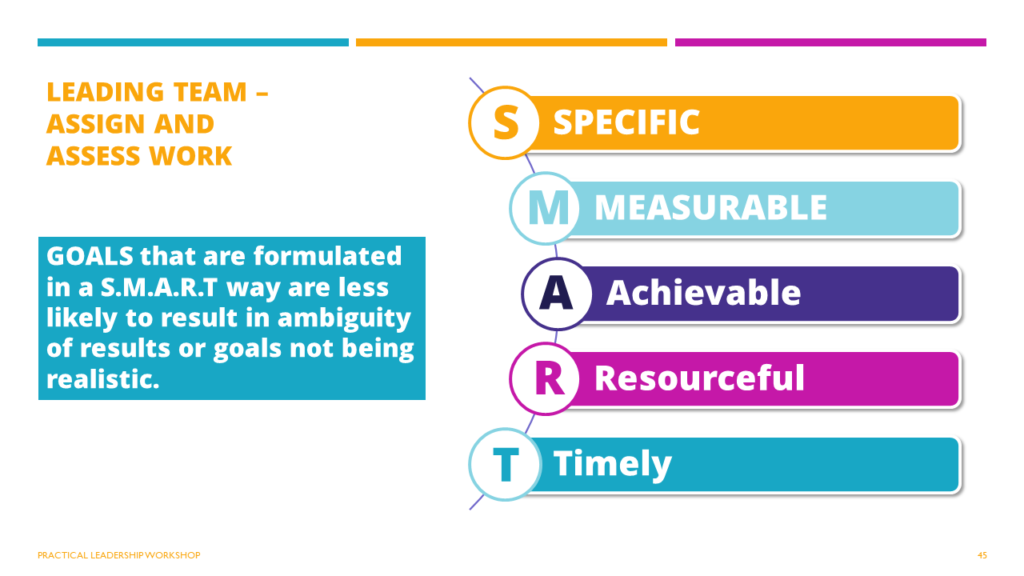If Covid taught the business world one thing, it was that how we lead and manage in the future will separate the good companies from the great.
It will also go a long way towards establishing an Employee Value Proposition that does not rely on financial incentives.
But first, why do we separate being a Leader from being a Manager – particularly for mid-level managers (often the ‘meat-between-the-bread’)?
What is Leading and Managing?
Let’s start with the Holy Grail of leadership to answer this question:
[Level 5] leaders display a powerful mixture of personal humility and indomitable will… their ambition is first and foremost for the cause… and its purpose… [and who motivate] the enterprise more with inspired standards than inspiring personality.Jim Collins -‘Good to Great’.
Where leaders ‘inspire and motivate to a Purpose’….
Managers organise the detail and ‘just get things done’ – with some leadership of course.
a #robservation
Understanding these fundamental differences in approach can help you tackle how you sometimes lead – but always manage your team.
Managing starts with YOU.
For many SME managers or business leaders, learning to manage is often done ‘on-the-job’ for very good and understandable reasons.
We’ve found that the following on-the-job elements can make a difference in this journey… with just one golden rule to bind them all!
The GOLDEN RULE
You are no longer the technical specialist at the coalface – you are managing through others to get a job done.
Use a Mirror and a Window.
This concept relates to the ways in which you identify roadblocks to how you manage your team.
The Mirror
When someone is not performing to their best, look into the ‘proverbial mirror’ and ask ‘how am i helping or hindering this person from being their best at their job?’
The answers to that question will guide you to other ways of supporting your team, from more feedback through to re-designing a way of work.
The Window
There are two types of Window and we recommend you use both depending on the situation.
- First, when you look into the Mirror and find that you have genuinely done what you can for a person, you can now look out the window to watch and help them on a journey to improving themselves (see ‘Be HUMAN’ that follows).
- The second Window (another Jim Collins truism like the Mirror) describes the ways you acknowledge and recognise great work – by opening the Window to tell the team and the world it’s them, not you.
Either option you use, using a Mirror with a Window works.
Be SMART.
This acronym is a tried and trusted way of assigning work and relates to the following:

Be HUMAN.
This can sometimes be the greatest challenge for any Manager…. and without ongoing therapy [inserts chuckle], being ‘human’ will be a challenge for some.
The list is endless for why we avoid Human Manager conversations at work:
- Avoiding conflict is natural (for many)
- Not wanting to appear ‘vulnerable’
- Not wanting to get in trouble with ‘the law’…
Mirrors, Windows and SMART objectives help provide the detail for the above type of conversations…. but how and when you communicate makes the real difference.
LinkedIn is full of articles and ‘boffins’ talking about ’empathy’ and ‘vulnerability’ to help with that question – and I genuinely encourage you to broaden your knowledge about these concepts as a post-Covid Manager/Leader.
In the meantime, being a HUMAN Manager in the context of this article means:
- starting with the genuine good you want for the team
- recognising how you help or hinder any conversations
- holding yourself or the team to account for outcomes – with genuine effort to see that it happens
- …and calling out matters respectfully when it doesn’t.
Why the fuss?
Practicing being a Human Manager in the future will be difficult.
It will be humbling or rewarding…
… but it will be necessary.
As a Manager with responsibility for the people in your care and to help the business succeed, you have a single driving job to do – ensure that ‘things get done’ (especially in a post-Covid world where teams want to be a part of something they believe in, but that’s an article for another day).
Helping your team be their best at getting things done, or helping an individual see that their best is possibly elsewhere, is what separates the good from the Human Managers who already:
- Use a Mirror
- Regularly open their Window to shout recognition
- Are SMART
- …and are definitely HUMAN
And if it’s all still confusing?
If you need help or have a sense this might be a future issue for you and your business, please click the link below and we’ll be happy to speak to you about any ideas this article has raised for you (or your team).
Thanks for reading!

